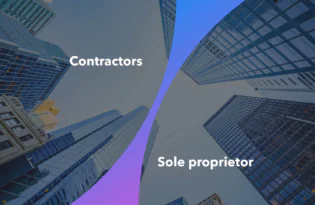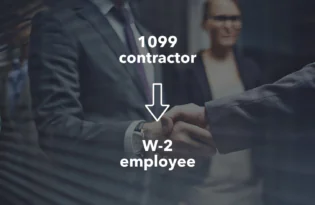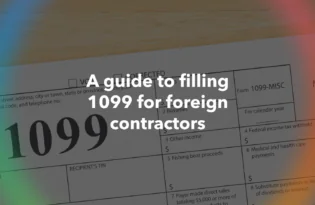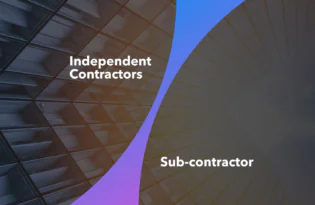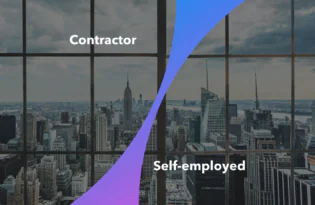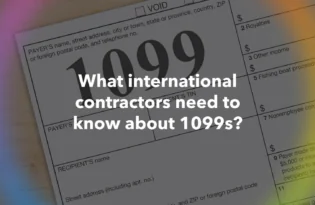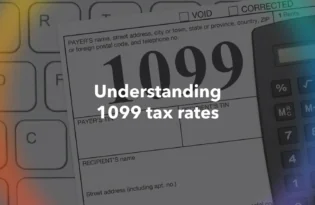What is Form W-4
What is Form W4? This quick guide explains what it does, when you need it, and how to avoid the most common mistakes.
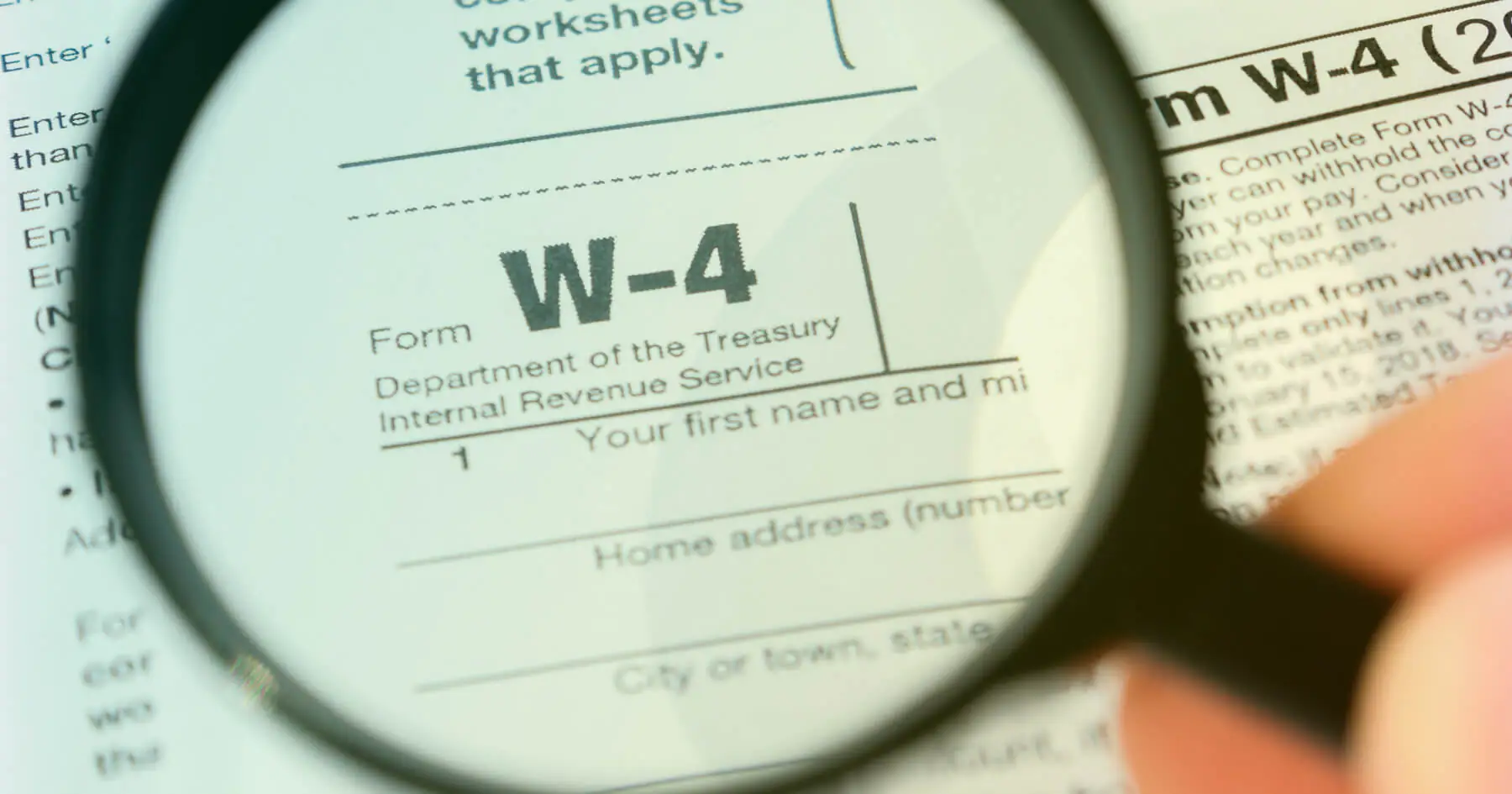
Officially called the Employee’s Withholding Certificate, IRS Form W-4 is an IRS document that tells employers how much federal income tax to withhold from an employee’s paycheck. Every US-based employee needs to fill one out during onboarding.
It factors in details like marital status, dependents, and additional income to calculate the correct withholding amount.
For U.S. employers, collecting a W-4 is a standard part of hiring. But if you’re an international company expanding into the US or managing a hybrid team with US employees, it’s critical to understand how Form W-4 works, and how it differs from other IRS forms used for contractors or foreign workers. Using the wrong form or missing key info can lead to compliance issues down the line.
Next, we’ll discuss who needs a W-4, when to use it, and how to avoid common mistakes.
When do you need Form W-4?
When asking “What is Form W-4?”, chances are the main thing you’re asking is whether or not you actually need it.
The answer is that if you’re hiring US-based employees (i.e., someone who is on direct payroll and gets a W2 at the year’s end), you will need to have them complete Form W4 before they receive their first paycheck.
There are other situations where you need a new W4, including:
- Their tax situation changes (marriage, new child, side income)
- They request an adjustment to withholding
- The IRS tells them to (yes, this can happen)
| Scenario | W-4 Required? | Why? |
|---|---|---|
| You’re hiring a US-based employee (W-2) | ✅ Yes | IRS requires it to calculate tax withholding |
| An employee is starting a second job | ✅ Yes | Helps avoid under-withholding across multiple jobs |
| An employee gets married or has a child | ✅ Yes | Filing status and dependent credits may change |
| A US employee wants to adjust their withholding | ✅ Yes | They can request more or less tax to be withheld |
| The IRS issues a withholding directive | ✅ Yes | Must be followed by both the employee and the employer |
| You’re hiring a US-based independent contractor | ❌ No | Use Form W-9 instead |
| You’re hiring a non-US contractor or freelancer | ❌ No | Use form W-8BEN or W-8BEN-E |
| You’re hiring an international employee | ❌ No | Use local payroll + EOR solution–not Form W-4 |
What’s actually on Form W-4?
The W-4 used to be very simple. But now, it’s a very nuanced tax document, and it’s for increased accuracy. The current form includes:
- Personal info and filing status
- Multiple jobs/spouse working checkbox
- Dependent claim amounts
- Other income (like freelance gigs or investments)
- Additional withholding requests
There are no longer “allowances” like in the older forms. It’s all about precision now, which can help avoid underpayment penalties or unexpected tax bills in April.
Common mistakes to avoid with Form W-4
Here are the biggest red flags we often see regarding Form W4, especially with companies that may be scaling fast or onboarding remote talent in bulk.
| Mistake | Why It’s a Problem |
|---|---|
| Treating a contractor like an employee | Triggers tax violations and misclassification risk |
| Using W-4 for non-U.S. employees | Completely invalid for international payroll |
| Not updating W-4 after major life events | Leads to incorrect tax withholding |
| Forgetting to submit a W-4 altogether | IRS default kicks in (single, no adjustments) |
| Using outdated or altered W-4 templates | IRS may reject them, or worse, treat them as non-compliant |
Doing this manually can be challenging, especially if your company is rapidly scaling. One of the best ways to stay compliant and reduce risks is to leverage a global workforce management platform, like Payoneer Workforce Management.
Managing U.S. employees and global contractors? Here’s a smarter way
Now that you’ve got a clear answer to the question “What is Form W-4?”, it’s time to take the next step.
Your company likely has enough on its plate, and spending time managing a cross-border team’s compliance can take away from time spent on other operational tasks.
The last thing you need is to chase tax forms, second-guess classification, or wonder whether you’re about to get flagged by the IRS.
Here’s how Payoneer Workforce Management offers guidance, support, and a centralized way to handle it:
- ✅ W-4s for U.S. employees
- ✅ W-9s, W-8BENs, and W-8BEN-Es for contractors
- ✅ EOR(for employees) and AOR(for independent contractors) support, so classification is never a guessing game
- ✅ Secure document tracking and reminders
Whether you’re running a team of 50 or 500, we will help your global workforce, allowing your company to stay focused on core business operations.
If you’re ready to take charge of your workforce, reach out today for a free demo.
Disclaimer
Nothing herein should be construed as if Payoneer Inc. or its affiliates are soliciting or inviting any person outside the jurisdiction where it operates/is licensed to engage in payment services provided by Payoneer Inc. or its affiliates, unless permitted by applicable laws. Any products/services availability are subject to customer’s eligibility. The availability of this product is not guaranteed and may vary. Not all products/services are available in all jurisdictions in the same manner.
Related resources
Latest articles
-
Employment laws in Sweden
Explore the employment laws in Sweden, a comprehensive guide to employees’ rights, employer obligations, and fair labor practices.
-
Employment laws in Poland
Explore the ins and outs of employment laws in Poland, an info-rich guide to employees’ rights, employer obligations, and fair labor practices that shape the future.
-
Employment laws in Indonesia
Find out more about Indonesia labor laws that dictate how employees should be contracted, managed, and paid, both on a national and state/territory level.
-
Employment laws in France
Learn about France’s labor laws dictating minimum wage, benefits, and more. Plus, discover the consequences of non-compliance with employment laws in France.
-
Employment laws in Spain
Find out more about Spain’s labor laws, from contracts and benefits to termination rules.
-
Employment laws in Australia
Find out more about the employment laws in Australia that dictate how employees should be contracted, managed, and paid, both on a national and state/territory level.
Disclaimer
The information in this article/on this page is intended for marketing and informational purposes only and does not constitute legal, financial, tax, or professional advice in any context. Payoneer and Payoneer Workforce Management are not liable for the accuracy, completeness or reliability of the information provided herein. Any opinions expressed are those of the individual author and may not reflect the views of Payoneer or Payoneer Workforce Management. All representations and warranties regarding the information presented are disclaimed. The information in this article/on this page reflects the details available at the time of publication. For the most up-to-date information, please consult a Payoneer and/or Payoneer Workforce Management representative or account executive.
Availability of cards and other products is subject to customer’s eligibility. Not all products are available in all jurisdictions in the same manner. Nothing herein should be understood as solicitation outside the jurisdiction where Payoneer Inc. or its affiliates is licensed to engage in payment services, unless permitted by applicable laws. Depending on or your eligibility, you may be offered the Corporate Purchasing Mastercard, issued by First Century Bank, N.A., under a license by Mastercard® and provided to you by Payoneer Inc., or the Payoneer Business Premium Debit Mastercard®, issued and provided from Ireland by Payoneer Europe Limited under a license by Mastercard®.
Skuad Pte Limited (a Payoneer group company) and its affiliates & subsidiaries provide EoR, AoR, and contractor management services.

